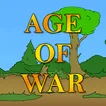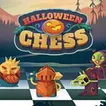































































































































































Best Strategy Games: A Comprehensive Guide
Embarking on a journey through the best strategy games is akin to enrolling in a masterclass of the mind. These games are the digital battlegrounds where tactical skills are honed and decision-making is put to the test. They are not just about the thrill of victory or the agony of defeat; they are about the cerebral dance between foresight and adaptability.
Strategy games come in many forms, each presenting a unique theater of war where players must manage resources, build and command armies, and conquer territories. The beauty of these games lies in their depth and complexity, offering a rich tapestry of scenarios that can unfold in countless ways based on a player’s approach.
At the heart of these games is the challenge to think critically and strategically. Players must not only react to the actions of their opponents but also anticipate them, setting traps and devising counter-strategies. The satisfaction derived from executing a well-planned maneuver that turns the tide of battle is unparalleled.
These games are not just about what happens on the virtual battlefield; they are also about what happens inside the player’s mind. They encourage learning through trial and error, fostering a growth mindset that is applicable beyond the confines of the game. Whether it’s a turn-based epic or a fast-paced real-time contest, the best strategy games are those that leave players with a sense of accomplishment, a feeling that they have outsmarted and outmaneuvered their opponents through sheer mental prowess.
As we explore the top titles that define this genre, we celebrate the strategic masterpieces that have captivated gamers for decades and continue to evolve, offering ever more immersive and intellectually stimulating experiences.
Strategy Gaming: The Ultimate Test of Tactics and Foresight
Strategy gaming is a realm where every choice carries weight, a world where the cerebral meets the competitive. It’s a domain that demands not just quick thinking but also long-term planning and strategic foresight. At the core of this genre are the mechanics that challenge the mind: resource management, strategic planning, and adaptability.
Resource management is the backbone of strategy gaming, compelling players to balance the economy of their empire with the needs of their military and infrastructure. Strategic planning involves the careful orchestration of units and the anticipation of enemy moves, akin to a chess match on a grand scale. Adaptability is the ability to pivot strategies in response to the ever-changing dynamics of the game, ensuring that no two playthroughs are ever the same.
The cognitive benefits of engaging with strategy games are manifold. They sharpen problem-solving skills, improve concentration, and can even enhance memory. Players learn to recognize patterns, predict outcomes, and develop complex strategies, all of which are skills that can be transferred to real-world scenarios.
The evolution of strategy games is a testament to their enduring appeal. What began as board games with simple rules has blossomed into sophisticated digital experiences that simulate vast, intricate worlds. These games have grown from the tabletops to the digital realm, where they continue to push the boundaries of what is possible in game design.
In essence, strategy games are more than just entertainment; they are a sophisticated blend of art and intellect. They offer a playground for the mind where every decision is a brushstroke on the canvas of victory or defeat. It is here, in the ultimate test of tactics and foresight, that players can truly demonstrate their strategic acumen.
Sub-genres and Mechanics: The Diversity of Strategy Games
The landscape of strategy games is as varied as it is vast, encompassing a plethora of sub-genres that cater to different styles of play and strategic thinking. Each sub-genre brings its own set of rules and mechanics, offering a distinct experience that challenges players in unique ways.
One such sub-genre is the grand strategy game, where players control entire nations or empires, guiding them through centuries of history. Here, the focus is on diplomacy, economic policies, and military conquest over large-scale maps. Players must think macroscopically, considering the long-term effects of their actions on the world stage.
Turn-based strategy games, on the other hand, allow players to take their time, planning each move with precision. These games often resemble a game of chess, where the ability to think several moves ahead is crucial. The turn-based system provides a more methodical pace, where the tension builds with each decision made.
Real-time strategy games demand quick reflexes and the ability to think on one’s feet. With events unfolding continuously, players must manage resources, construct bases, and deploy forces simultaneously, leading to a dynamic and often hectic gameplay experience.
The 4X sub-genre—short for “explore, expand, exploit, and exterminate”—combines elements of grand strategy and turn-based gameplay. Players embark on a journey to discover new lands, expand their influence, exploit resources, and exterminate rivals in a bid for dominance.
Each of these sub-genres, along with others like tower defense and tactical RPGs, contribute to the rich tapestry of strategy gaming. The mechanics within these games, from unit customization to tech trees and alliance systems, ensure that the path to victory is never linear. It is this diversity that keeps the genre fresh and engaging, as players continuously discover new ways to challenge their strategic abilities and forge paths to triumph.
The Future of Strategy Gaming: Innovations and Trends
As we peer into the future of strategy gaming, we stand on the precipice of a new era marked by technological innovation and player-driven creativity. The integration of artificial intelligence (AI) is set to redefine the strategic landscape, introducing opponents that learn and adapt in real-time, pushing players to new heights of tactical prowess. The emergence of virtual reality (VR) promises to immerse players in fully-realized 3D worlds, where the line between game and reality blurs, and strategic decisions carry an unprecedented sense of presence and consequence.
Community-created content is another burgeoning trend, with modding tools democratizing game development and allowing players to tailor their experiences. This has led to a renaissance of customization, where the collective imagination of the community continuously breathes fresh life into games, ensuring a constantly evolving playground of strategies and scenarios.
The future of strategy gaming is also likely to be influenced by the rise of cross-platform play, breaking down barriers between devices and enabling a unified strategic community. Cloud gaming could further revolutionize access to strategy games, making them available on any device at any time, freeing players from the constraints of hardware and allowing strategy gaming to become more accessible than ever.
In this forward-looking landscape, strategy games are poised to become more than just a pastime; they are set to become a dynamic and ever-evolving art form that challenges the intellect, inspires the imagination, and brings together a global community of thinkers and planners. As these innovations take hold, the world of strategy gaming is sure to captivate and engage players in ways we have only begun to imagine.